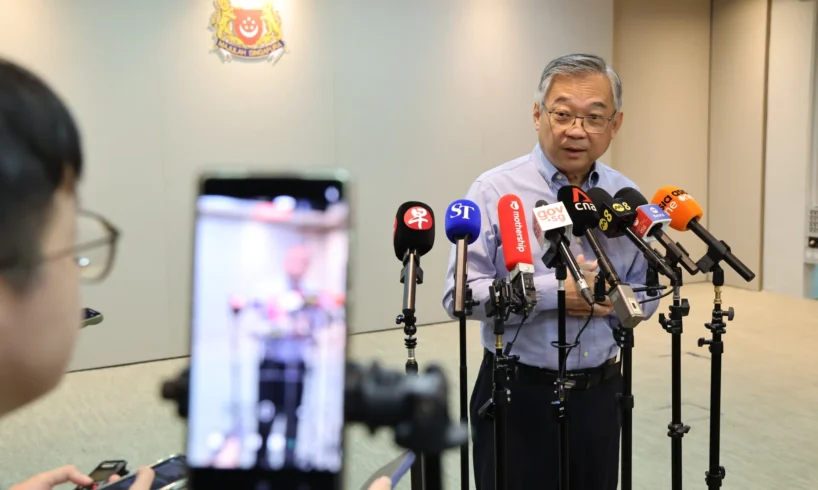
Major drugmakers are ‘continuing to clarify’ with the Trump administration to better understand the conditions and criteria tied to the new taxes, he adds
[SINGAPORE] The upcoming pharmaceutical tariffs imposed by the Trump administration may have “no immediate impact” on drugmakers as many could qualify for exemptions, said Deputy Prime Minister (DPM) Gan Kim Yong on Saturday (Sep 27).
“As I understand, many of them actually already have plans to invest (in the US), so tariffs may not have immediate impacts on their exports,” said DPM Gan, who is also the trade and industry minister.
At the same time, major drugmakers are also “continuing to clarify” with the Trump administration to better understand the conditions and criteria tied to the new tariffs, he added.
These discussions include clarifying if plants that are in the process of planning would qualify for the exemptions.
He was speaking to reporters a day after US President Donald Trump announced a 100 per cent tariff on imports of branded or patented pharmaceutical goods from Oct 1, unless a company has already begun construction of a plant in the country.
Pharmaceutical firms that have broken ground on US facilities will receive exemptions, Trump said.
BT in your inbox
Start and end each day with the latest news stories and analyses delivered straight to your inbox.
The tariffs – and the associated exemptions – are significant to Singapore because pharmaceutical exports to the US account for about S$4 billion of the Republic’s exports, or about 13 per cent of domestic goods exports to the country, noted DPM Gan.
Singapore also hosts nine of the world’s top 10 pharmaceutical firms.
On a bilateral basis, Singapore is also continuing its discussions with the US on pharmaceuticals and semiconductors, DPM Gan said.
SEE ALSO
“But I think the negotiation and discussion will take time, because there are many details that need to be worked out,” DPM Gan said. “I will give an update at the appropriate time.”
Broader concerns
Currently, the broader concern is that new items may be put on the table for tariffs, said DPM Gan.
On the same day as his tariff announcement, Trump also said on Truth Social that taxes would be imposed on kitchen cabinets, bathroom vanities and related products (50 per cent), upholstered furniture (30 per cent) and heavy trucks (25 per cent), all effective from Oct 1.
“And this is not just the US imposing tariffs – I think in time to come, other countries will also begin to have to introduce tariffs to protect their own industries,” DPM Gan warned.
To that end, Singapore will have to reorganise itself and strengthen its competitiveness and resilience, so that the Republic remains “relevant to the global economy in the long term”.
That is why the city-state is taking a deeper look at its long-term economic strategy under the Singapore Economic Resilience Taskforce, which he chairs, said DPM Gan.
The task force was formed earlier in 2025 in the face of tariff-driven uncertainty. It has three work streams: regular communication on tariff developments, identifying immediate challenges faced by businesses and workers and reviewing existing measures, and conducting a fresh review of Singapore’s economic strategy.
Two major support measures have also been announced.
The Business Adaptation Grant – to be launched by October 2025 – will be capped at S$100,000 per company to help businesses adjust to the new tariff environment. In addition, the new Graduate Industry Traineeships scheme will fund traineeships for recent and soon-to-be graduates.
More details on the Business Adaptation Grant will be shared by the task force in the coming fortnight, DPM Gan said.




